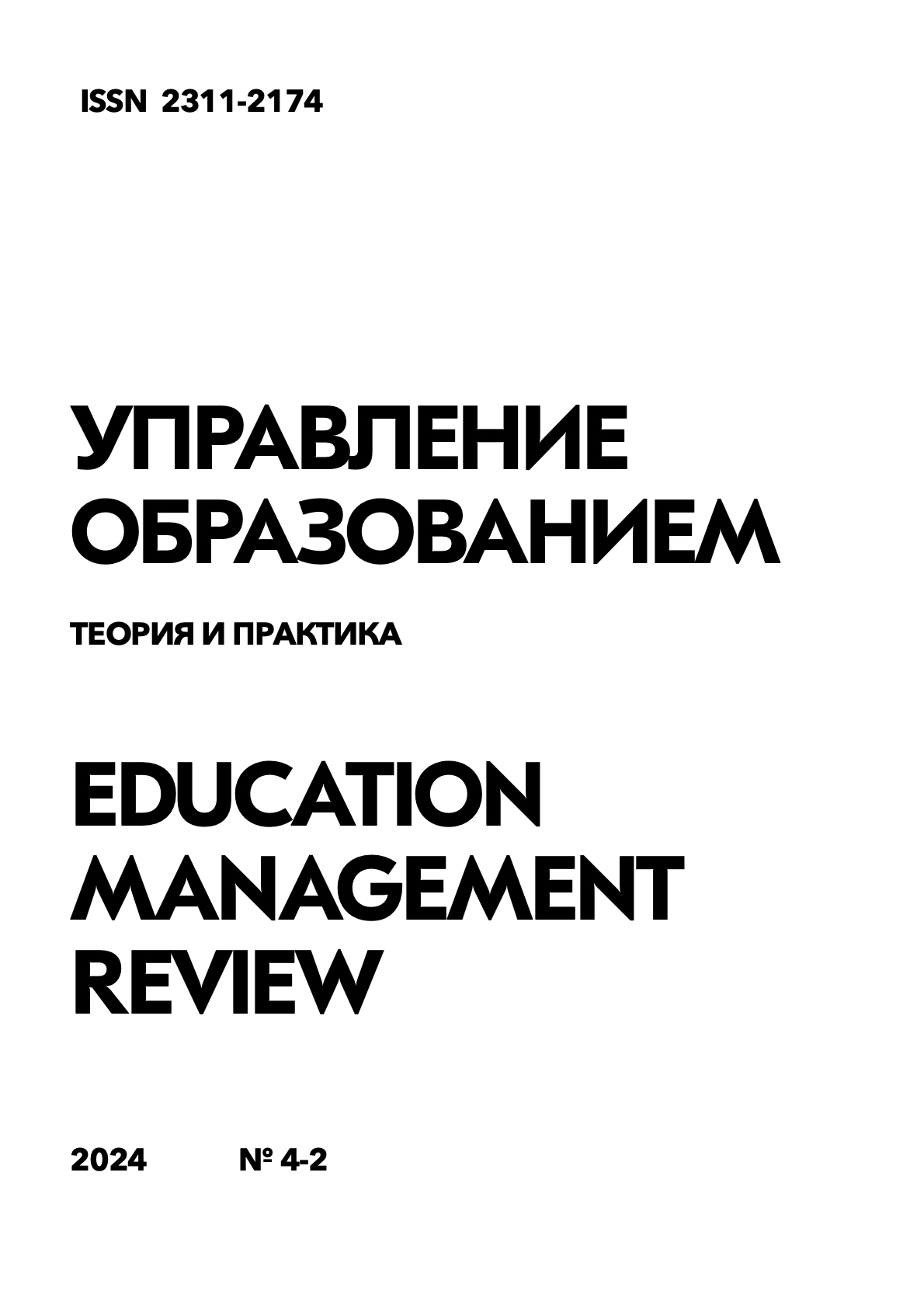The formation of functional literacy as a direction of interaction in the field of education with the countries of Southern Africa
Keywords:
functional literacy, organizational conditions, methodological support, Russian language, South Africa, intercultural interaction.Abstract
The relevance of the study is due to the need to identify organizational and pedagogical conditions for the formation of functional literacy in Southern African countries in the context of promoting the Russian language and culture. The purpose of the work is to identify the key areas and mechanisms of cooperation between Russia and the countries of Southern Africa in the field of education to improve functional literacy. The methodology includes a comprehensive analysis of regulatory documents, statistical data, and empirical research results (questionnaires of teachers (n=120) and students (n=450), semi-structured interviews with experts (n=15)). A comparative analysis of educational systems and practices of functional literacy formation in Southern African countries has been performed. The results showed that the key barriers are the low resource availability of schools, insufficient teacher training, and weak integration of functional literacy into the content of education. Promising models of interaction have been identified: exchange of experience and best practices, professional development of teachers, development of educational and methodological complexes taking into account national specifics. The theoretical significance lies in clarifying the concept of functional literacy in an intercultural context. The practical value is determined by the possibility of using the results to optimize educational interaction between Russia and African countries. The prospects of the study are related to scaling effective models of functional literacy formation to other developing countries. Russian Russian Ministry of Education's state assignment on the topic "Organizational conditions and methodological support for teaching the Russian language and promoting Russian culture in Southern African countries (South Africa, Zimbabwe, Namibia, Botswana)" (scientific topic code of the Kyrgyz Republic ZU-2024-0014)" was written as part of the fulfillment of the state assignment of the Ministry of Education of the Russian Federation.
References
Абанкина И.В., Фрумин И.Д. Глобальная конкурентоспособность российского образования: материалы для дискуссии. М.: НИУ ВШЭ, 2017. 112 с.
Азимов Э.Г., Щукин А.Н. Новый словарь методических терминов и понятий (теория и практика обучения языкам). М.: Икар, 2009. С. 342.
Егорова Г.И., Семухин С.П., Егоров Н.Н. Дискурс-анализ формирования функциональной грамотности будущих бакалавров в области профессиональной деятельности // Вестник ТГПУ. 2021. № 5(217).
Крузе Б.А., Вертьянова А.А., Ермошина М.А. Условия развития функциональной грамотности при организации обучения русскому языку в странах юга Африки // Обзор педагогических исследований. 2023. Т. 5. №7. С. 84-89.
Лесев В.Н., Валеева Р.А. Глобальные компетенции в современном высшем образовании // Гуманитарные науки и образование. 2021. Т. 12. № 4(48). С. 92-95.
Панфилова В.М., Панфилов А.Н. Формирование глобальной компетентности как условие эффективного профессионального образования будущих педагогов // Педагогический журнал. 2021. Т. 11. № 2А. С. 239-247.
Худякова М.А., Власова И.Н. Анализ международных подходов к оценке функциональной грамотности обучающихся // Управление образованием: теория и практика. 2022. № 3(49). С. 216-226.
Mullis I.V.S., Martin M.O., Foy P., Hooper M. PIRLS 2016 International results in reading. Retrieved from Boston College. Boston: TIMSS & PIRLS International Study Center, 2017.
Mullis I.V.S., Martin M.O., Foy P., Arora A. TIMSS 2011 international results in mathematics. Chestnut Hill: TIMSS & PIRLS International Study Center, Boston College, 2012.
PISA 2018 Results: What students know and can do. Vol. I. Р.: PISA, OECD Publishing, 2019.
Spaull N., Kotze J. Starting behind and staying behind in South Africa: The case of insurmountable learning deficits in mathematics // International journal of educational development. 2015. № 41. рр. 13-24.
Howie S.J., Combrinck C., Roux K., Tshele M., Mokoena G.M., McLeod Palane N. PIRLS Literacy 2016 Progress in International Reading Literacy Study 2016: South African Children's Literacy Achievement. Pretoria: Centre for Evaluation and Assessment, 2018.
Shizha E., Kariwo M.T. Education and development in Zimbabwe. Dordrecht: Sense Publishers B.V., 2011.
Hattingh A., Roux K., Halland S., Jordaan C.A. Investigating the use of PIRLS in South African classrooms: A focus on reading comprehension. (Unpublished doctoral dissertation). Pretoria: University of Pretoria, 2016.
Valerio A., Sanchez Puerta M. L., Tognatta N., Monroy Taborda S. Are there skills payoffs in low-and middle-income countries? Empirical evidence using STEP data. Washington: The World Bank, 2016.
Bethell G. Mathematics education in Sub-Saharan Africa: status, challenges and opportunities. Washington: The World Bank Group, 2016. 212 р.
Venkat H., Spaull N. What do we know about primary teachers' mathematical content knowledge in South Africa? An analysis of SACMEQ 2007 // International journal of educational development 2015. № 41. рр. 121-130.
Serpell R., Simatende B. Contextual responsiveness: An enduring challenge for educational assessment in Africa // Journal of intelligence. 2016. № 4(1). Р. 3.
Downloads
Published
How to Cite
Issue
Section
License

This work is licensed under a Creative Commons Attribution-NonCommercial-NoDerivatives 4.0 International License.




